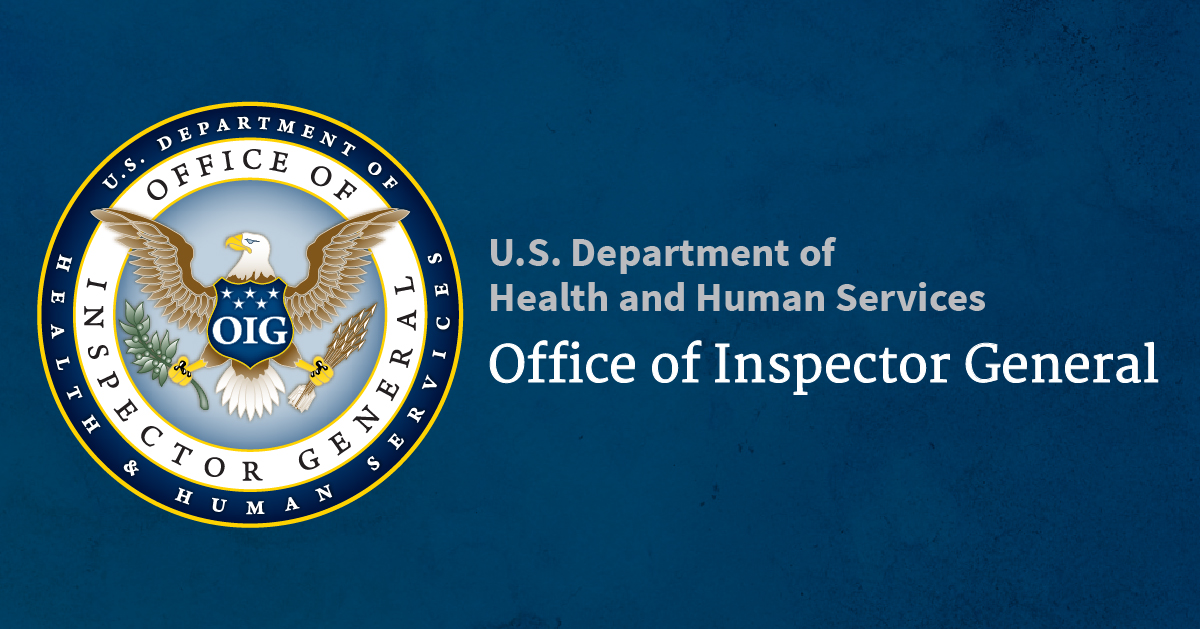Why OIG Did This Audit
OIG initiated this audit simply because of fears with regards to the Nationwide Institutes of Health’s (NIH’s) grant awards to EcoHealth Alliance (EcoHealth), NIH’s monitoring of EcoHealth, and EcoHealth’s use of grant funds, together with its monitoring of subawards to a foreign entity.
Our targets were to identify whether: (1) NIH monitored grants to EcoHealth in accordance with Federal specifications and (2) EcoHealth utilized and managed its NIH grant funds in accordance with Federal prerequisites.
How OIG Did This Audit
We obtained a list of all NIH awards to EcoHealth and all subawards made by EcoHealth in the course of Federal fiscal years 2014 via 2021 (audit interval). Our audit lined three NIH awards to EcoHealth totaling roughly $8. million, which included $1.8 million of EcoHealth’s subawards to eight subrecipients, such as the Wuhan Institute of Virology (WIV).
Our audit methodology was built to address NIH and EcoHealth’s policies, treatments, and inside controls in place to watch, manage, and use grant cash. We selected and reviewed 150 EcoHealth transactions totaling $2,578,567 across the 3 NIH awards comprised of distinctive sorts of value categories for allowability.
What OIG Identified
In spite of pinpointing possible challenges related with exploration becoming done beneath the EcoHealth awards, we uncovered that NIH did not effectively watch or consider timely action to tackle EcoHealth’s compliance with some requirements. While NIH and EcoHealth had set up checking strategies, we located deficiencies in complying with those people methods minimal NIH and EcoHealth’s ability to proficiently watch Federal grant awards and subawards to understand the nature of the analysis performed, identify probable challenge regions, and acquire corrective motion. Applying its discretion, NIH did not refer the analysis to HHS for an outdoors assessment for improved probable pandemic pathogens (ePPPs) since it decided the analysis did not include and was not fairly expected to produce, use, or transfer an ePPP. Even so, NIH added a distinctive term and problem in EcoHealth’s awards and delivered constrained direction on how EcoHealth need to comply with that necessity. We uncovered that NIH was only able to conclude that analysis resulted in virus growth that met specified benchmarks based mostly on a late development report from EcoHealth that NIH unsuccessful to stick to up on until finally virtually 2 a long time immediately after its thanks date. Primarily based on these results, we conclude that NIH missed possibilities to much more successfully observe research. With enhanced oversight, NIH could have been in a position to acquire far more well timed corrective actions to mitigate the inherent threats involved with this kind of research.
We discovered several other deficiencies in the oversight of the awards. Some of these deficiencies involve: NIH’s poor termination of a grant EcoHealth’s incapacity to obtain scientific documentation from WIV and EcoHealth’s improper use of grant cash, ensuing in $89,171 in unallowable expenditures.
OIG oversight work has regularly demonstrated that grant-awarding agencies’ oversight of subrecipients, no matter whether domestic or foreign, is hard. The shortcomings we identified related to NIH’s oversight of EcoHealth display ongoing complications. Compounding these longstanding challenges are threats that may possibly limit effective oversight of overseas subrecipients, which normally is dependent on cooperation between the receiver and subrecipient, and the international locations in which the investigate is done. Although WIV cooperated with EcoHealth’s checking for a number of several years, WIV’s absence of cooperation subsequent the COVID 19 outbreak minimal EcoHealth’s skill to check its subrecipient. NIH should really evaluate how it can greatest mitigate these concerns and be certain that it can oversee the use of NIH cash by international recipients and subrecipients.
What OIG Suggests, and Nationwide Institutes of Health’s and EcoHealth’s Comments
We recommend that NIH guarantee that EcoHealth accurately and in a timely manner report award and subaward facts ensure that administrative steps are appropriately executed carry out increased monitoring, documentation, and reporting needs for recipients with overseas subrecipients assess no matter whether NIAID employees are following coverage to err on the side of inclusion when deciding no matter if to refer investigation that may possibly include ePPP for even more review take into account irrespective of whether it is acceptable to refer WIV to HHS for debarment guarantee any foreseeable future NIH grant awards to EcoHealth deal with the deficiencies famous in the report and solve expenditures recognized as unallowable as well as maybe unreimbursed costs.
In prepared feedback, NIH said that it concurred or commonly concurred with our suggestions, and offered steps taken or prepared to tackle them, which are much more fully explained in the report.
We propose EcoHealth submit progress stories by the essential due date, comply with rapid notification necessities, make sure accessibility to all subrecipient information, adequately account for subawards, and refund to the Federal Governing administration $89,171 in unallowable fees.
In prepared comments, EcoHealth concurred with our suggestion to get ready correct subaward and specialist agreements but did not right condition no matter whether it concurred with the other tips. EcoHealth determined two substantive spots of disagreement with the noted conclusions: (1) the timeliness of EcoHealth’s Yr 5 development report and (2) whether an experiment exhibited increased virus advancement. Concerning the nine financial suggestions, EcoHealth mentioned that it reimbursed NIH for the overall reported unallowable costs and furnished NIH with facts on the amounts of allowable but unreimbursed expenditures. Even so, EcoHealth disagreed with OIG’s interpretation of Federal demands for some items of price tag.
With respect to EcoHealth’s remarks with regards to the timeliness of EcoHealth’s Yr 5 progress report, we have no proof that the development report, which was initiated on NIH’s on the net portal in July 2019, was entirely uploaded to the on the net portal at that time. Pertaining to the getting that an experiment exhibited “increased advancement,” our audit did not evaluate scientific outcomes for any of the experiments or make any dedication concerning the precision of NIH’s or EcoHealth’s interpretations of the Years 4 and 5 investigate final results. Our audit discovered that NIH’s personal analysis of the 12 months 5 development report concluded that the study was of a style that must have been noted promptly to NIH.
Submitted below: Nationwide Institutes of Health and fitness





More Stories
White House plans to nominate cancer center chief to lead NIH
What Happens to the Brain in Alzheimer’s Disease?
Biden Plans to Pick Monica Bertagnolli to Lead National Institutes of Health